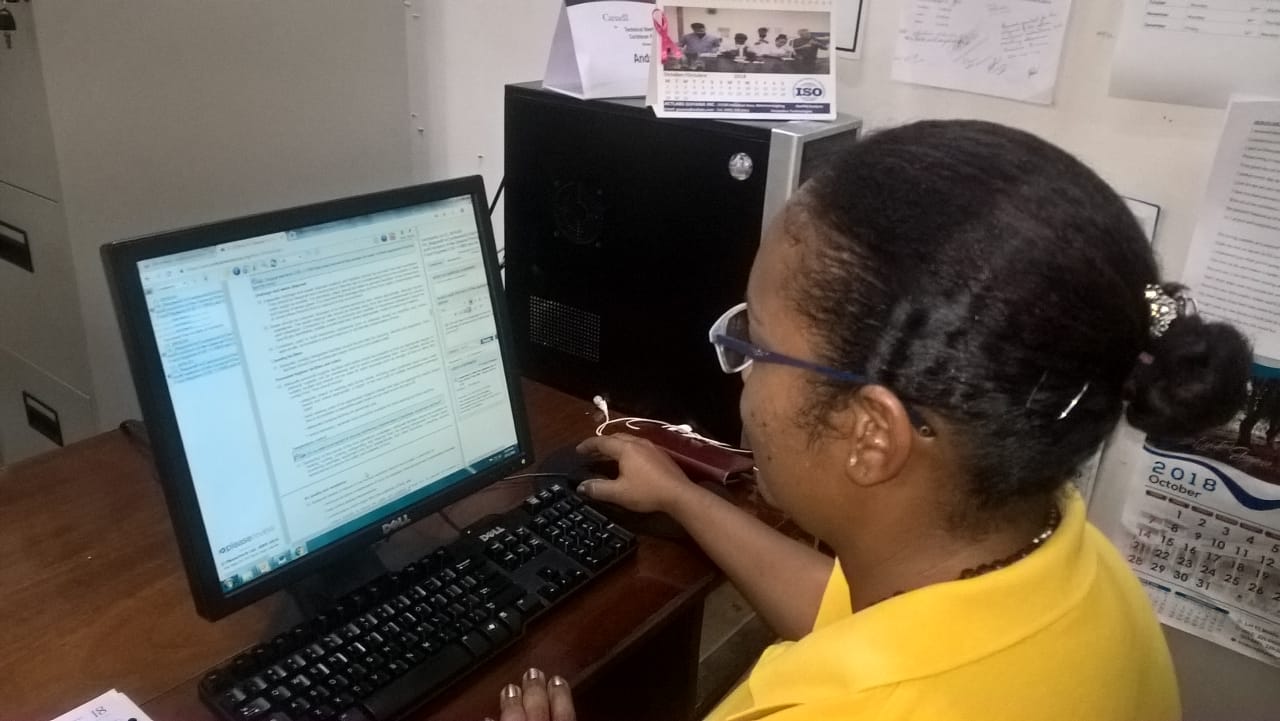The CCLAC Region - Regional Coordinator Ecuador
In 1976 a Coordinating Committee for Latin America, established by the 10th Codex Alimentarius Commission in 1974, held its first meeting in Rome with eight countries from the region in attendance. At its third session a proposal was made to change the name of the committee to its current form (Coordinating Committee for Latin America and the Caribbean) as this better reflected the membership of the region. In 1984 at its 31st session, the Executive Committee, acting on behalf of the Commission, agreed to this change.
The region of Latin America and the Caribbean is an important actor in the production and trade of food at a global level. The region produces enough food to supply itself and to export, with both water and land resources to produce even more.
The region has enormous natural wealth, a flourishing agricultural industry and a family farming sector that is essential for its population. The promotion and strengthening of food safety must be continued at the level of all regions to guarantee the health of consumers and fair and equitable trade.< /p>
The coordinator, Ecuador is based in AGROCALIDAD an agency attached to the Ministry of Agriculture and Livestock. They aim to create synergies between countries in the region, to provide mutual support in order to overcome regional problems and examine solutions to common challenges.
The coordinator further aims to strengthen collaboration among countries and strengthen the participation of developing countries in the Commission and its subsidiary bodies.
CCLAC Coordinator
All information on Codex is public and free.
For regional enquiries contact:
CCLAC Secretariat
Agencia de Regulación y Control Fito y
Zoosanitaria AGROCALIDAD
Avenida
Eloy Alfaro y Amazonas
Quito
Email: [email protected]
Guyana ups its Codex game
Earlier this year, the Codex Secretariat launched a series of workshops in the six Codex regions that are having a direct impact on the operational capacity of countries to engage in the standard-setting process. More participants are now expressing national positions via the Online Commenting System (OCS) and the Digital platform for Electronic Working Groups.
Linked to the workshops, the Codex Secretariat is currently holding a series of follow-up webinars tailored to users’ requests and may include the use of the OCS and eWG forum, information on the Codex step procedure and the web platform to collect information on Member countries’ food safety control systems.
We had a chat with Andrea Mendonca and Tandeka Barton from the Guyana National Codex Committee to learn more about their experience, improvements and future goals.
Q. What sparked Guyana’s request to hold a webinar?
A. Tandeka provided feedback to the National Codex Committee (NCC) on the workshop in Asunción, Paraguay, outlining the benefits of the training. After explaining how important it is for Guyana to comment on draft Codex documents even if they do not receive sponsorship to attend Codex committee meetings, the NCC agreed that a similar training on the OCS be arranged for all its members since they all stand to benefit. Also they can become familiar with the OCS to review and provide comments (if any) as stipulated in the circular letters.

Andrea Mendonca, Codex Contact Point of Guyana
Q. How did participants find the web training?
A.Members expressed great appreciation and gratitude for the online training and promised to log in to the test OCS and become familiar. They have also decided that they will select another subject matter for a similar training to be held for all members in 2019.
Q. What changes have you seen in your colleagues regarding participation in Codex since the trainings?
A. Since the training, Members have been actively reviewing the draft documents available on the OCS and provided comments. As a result of the training the committee formed sub-committees to review Codex documents up for comments. We have since reviewed and commented on documents for CCFH and CCFICS and the Codex Strategic Plan.
Since the training, Members have been actively reviewing the draft documents available on the OCS and provided comments
Q. Let’s focus on these two upcoming Committees. What is Guyana’s interest in CCFICS and CCFH?
A. The Government of Guyana has embarked on the implementation of ASYCUDA World (AW). The AW programme is an integrated customs management system, which was developed by the United Nations Conference on Trade and Development (UNCTAD) to aid with the modernization of manifests, customs declarations, accounting procedures, transit, suspense procedures, among others. ASYCUDA is a paperless system that would bring Guyana a step closer to the intended adoption and implementation of the single window system that CCFICS advocates. Guyana is interested in the following agenda items under CCFICS:
- The use of Systems Equivalence and Regulatory Approaches to Third-Party Assurance Schemes;
- Guidance on paperless use of electronic certificates (revision of the Guidelines for Design, Production, Issuance and Use of Generic Official Certificates – CXG 38-2001);
- Proposed draft guidance on regulatory approaches to third party assurance schemes in food safety and fair practices in the food trade; and
- The discussion paper on food integrity and food authenticity.
The interest in Food Hygiene is food allergen management – food business operators and the following agenda items up for discussion and comments:
- Histamine in Fish and Fishery Products Code of Practice;
- Shiga toxin-producing Escherichia coli (STEC) associated with a range of foods;
- Code of practice on food allergen management for food business operators; and
- Guidance for the management of microbiological foodborne crises/outbreaks.
Q. What advice would you give to other countries/CCPs who have completed the initial Codex web tools workshop?
A. Share the knowledge learned with their stakeholders or if there is a National Codex Committee in their country do the same. Everyone needs to be aware of how important the OCS is and how they can improve and increase their participation in Codex work through this easy-to-use tool.
Requests for webinars are always welcome by the Codex Secretariat. Send an email to [email protected].








Leave a comment